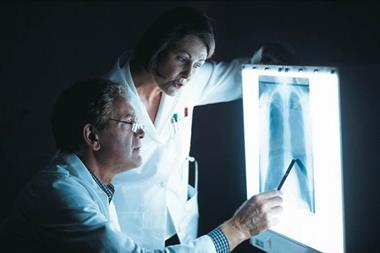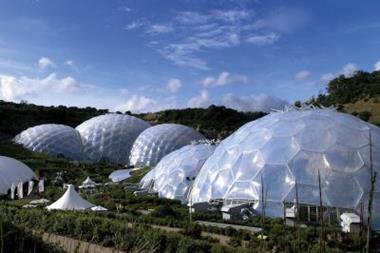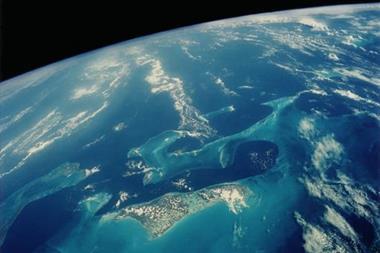Marco Borsotti and Artem Volynets discuss the future of climate change mitigation in Russia and the role of the United Nations Development Programme
In many countries, Russia included, sustainable development is misrepresented as fast economic growth, while the necessity to balance the growth with social and environmental well-being is forgotten. The United Nations Development Programme's aim is to serve as a bridge between the business community and the Government, advocating a three-pronged approach which considers all parts – economy, society and environment, which are the key prerequisites for a country's 'sustainable development'.
Since climate change mitigation is currently the hottest environmental topic on the agenda and has links to both social and economic issues, the UNDP can perform the role of removing barriers between business and government and between business and the society in which it operates.
It is only relatively recently that corporate business in Russia has become interested in social processes in their operational regions. There is now a status quo understanding that the initiation of social programmes and projects, including environmentally-oriented ones can provide positive benefits both environmentally and in terms of business sustainability.
Certain factors, such as Russia's technological and intellectual potential, the increasing number of Russian majors going global and the level of investment in research and development, would also suggest that the country is fully prepared to contribute to large-scale global initiatives aimed at mitigating climate change consequences.
The Russian challenges
However, modern Russia faces a number of specific challenges, making it difficult to simply copy the experience of other countries in reducing emissions of greenhouse gases. Russia's dependence on energy-hungry industries, rapid economic growth and high production rates, gives rise to great concern that it will result in extremely high energy consumption and consequently high emissions. In view of its country-specific challenges, Russia needs a tailored, country-specific programme to reduce its impact on the environment and mitigate climate change.
There is much that Russia and Russian business can do. Being one of the largest producers of energy resources, Russia has not always done enough to use these resources economically. In addition, energy-inefficient old technologies are still often used, which can also lead to harmful emissions. However, Russian business is definitely changing its perception of environmental corporate responsibility, understanding that it is possible to reconcile fast economic growth with effective emissions reduction. Having become aware of the issues, Russian business must now deal with these challenges as rapidly as possible.
“Success in tackling climate change needs to be more than just state policy
A partnership with mining
Mining is a sector with a very obvious environmental impact, but it is also a sector that, through its investment in modernisation and global presence, is leading the way in how Russian business is responding to these challenges. The UNDP recently signed a Memorandum of Understanding (MOU) with UC RUSAL, the world's largest aluminium and alumina producer and a member of the National Carbon Union, as part of the company's wider environmental initiative. Making production more environmentally friendly is a key strategic priority for the company to increase efficiency, adhere to best international practices and ensure that its operational areas remain safe for future generations and local communities.
UC RUSAL approached the UNDP with a proposal for an MOU in conjunction with the launch of its wider environmental initiative. Though there had previously been contact between the two partners on a number of occasions, the decision to join the project and become the first Russian company to do so was a logical step for UC RUSAL in order to formally seal the relationship. By joining the UNDP, UC RUSAL is formally acknowledging the importance of the issue of climate change, while also making a clear move to generate interest among other businesses.
This partnership will prove beneficial to UC RUSAL on several levels. Working together with the UNDP gives the company the opportunity to take part in a multi-lateral initiative to create a global network of projects driven by the single goal of addressing climate change.
The challenge of the practicalities of actively reducing emissions falls to UC RUSAL, but involvement with the UNDP means committing to certain standards and maintaining them. The UNDP has the knowledge, the resources and the expertise necessary to unite various forces into one powerful instrument. It provides an operational framework, value-system and a network of interested and interconnected entities, driven by the same goal.
UC RUSAL has already invested heavily in modernising facilities, developing new technologies and concentrating on research and development to reduce environmental impact. The company's modernisation programme includes the modernisation of Krasnoyarsk smelter, the world's second largest, which is close to completion and has already resulted in a 12% reduction in overall emissions.
Modernisation and mitigation
“Russia needs a tailored, country-specific programme to reduce its impact on the environment
For people outside the industry, the reality of the level of investment required to reduce emissions in facilities like Krasnoyarsk can be quite surprising. In the first six months of 2007, more than $40m was invested, while the company's overall investment in the project between 2000-2008 will exceed $300m, and will lead to a 30% reduction in harmful emissions.
The modernisation of the Bratsk aluminium smelter, the world's largest, is also starting. The programme is designed to run until 2012 and is aimed at improving environmental performance at the facility. An investment of $400m has been assigned to this major task which should result in a 40% reduction of pollutants.
Each project of this nature can to a certain extent contribute to climate change mitigation. However, a large country such as Russia with a developed industry and growing energy needs requires the simultaneous efforts of its other major corporations in order to make a substantial contribution to tackling the issue. UC RUSAL's initiative serves as an example of how environmental problems can potentially be solved, but it is only the beginning.
Success in tackling climate change needs to be more than just state policy. Especially in Russia, it will be the national industrial champions that will create the cultural shift to an environmentally-conscious approach in Russia and in their global operational regions.
A global network
The UNDP takes the lead in terms of the promotion of the Global Compact, the United Nations initiative aimed at attaining sustainable economic growth and strengthening corporate social responsibility. In 2007, UC RUSAL will also issue its second Social Report carried out in accordance with UN Global Compact principles. A considerable portion of the report will be dedicated to the company's environmental performance, its challenges and successes and offering a strategy for the future.
The UNDP's mission as a global network is to facilitate dialogue, accumulate success stories, and disseminate positive experience, be it in Russia, Asia or Africa. For companies participating in the Global Compact it may become an effective mechanism of interaction and a forum for exchange of experiences and best practices in climate change mitigation.
Postscript
Marco Borsotti is UNDP resident representative in the Russian Federation, and Artem Volynets is UC RUSAL director for corporate strategy, www.rusal.com



















